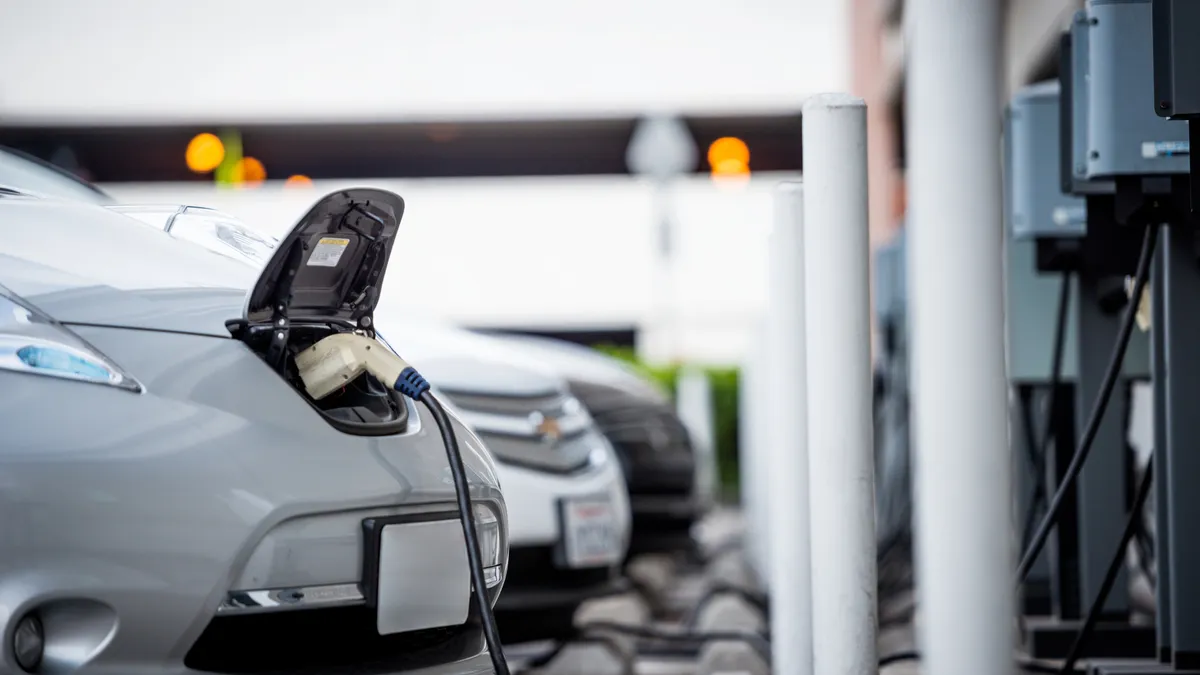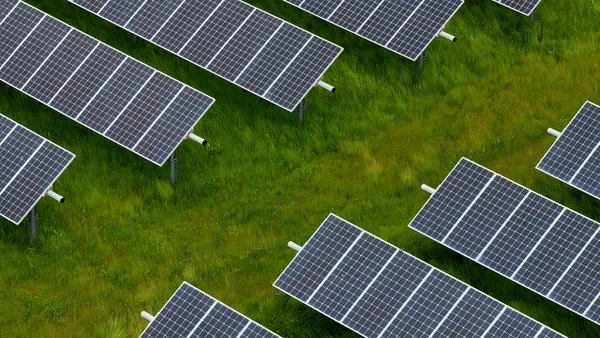The U.S. Department of Energy is distributing $12.62 million in formula grants to 32 local governments, two states and one tribe as part of its eighth tranche of awards under the Energy Efficiency and Conservation Block Grant.
Recipients will channel the funding toward activities that fall under 14 eligible categories of clean energy projects and programs aimed at reducing energy consumption and boosting energy efficiency. These include conducting energy assessments, installing electric vehicle charging stations, buying alternative fuel vehicles for municipal use, launching solarization campaigns and performing efficiency upgrades for low-income households, DOE said in an Aug. 28 news release.
The EECBG program, funded by the bipartisan infrastructure law and managed by the DOE’s Office of State and Community Energy Programs, has provided nearly $162 million to 210 communities, the department said. The program has over $430 million in formula grant funding available to allocate to over 2,700 eligible states, territories, local governments and tribes across the U.S., the DOE said after announcing the first tranche in October.
Arizona and Maryland are the two states receiving awards in this round, while the Muscogee (Creek) Nation, located in Okmulgee, Oklahoma, is the only tribe selected as a grantee for this round. Cities receiving grants in this eighth round include Babylon, New York; Charlotte, North Carolina; Livermore, California; Charlottesville, Virginia; Tempe, Arizona; Missoula, Montana; Wichita, Kansas; and Knoxville, Tennessee, among others.
The state of Arizona will get nearly $2.07 million for three projects — deploying updated energy management systems to monitor energy use and increase energy efficiency in 100 government buildings; creating a centralized digital resource to provide rebates to homes and businesses; and sub-granting funds to local governments for clean energy projects, such as energy assessments and weatherization upgrades in municipal buildings.
Maryland will receive over $2.1 million to provide subgrants on a competitive basis to support county and local government funding recipients with energy planning, decarbonization strategy development and expansion or revisions of existing energy plans and strategies. The state will also fund community energy liaisons to expedite energy efficiency and decarbonization efforts, according to the Maryland Energy Administration.
Tempe, Arizona, is separately getting $236,650 to launch an energy efficiency pilot program in three mobile parks to subsidize the cost of energy-saving upgrades, such as installing LED lighting, updating HVAC systems and adding insulation.
Missoula, Montana, will launch a building electrification campaign, draft new voluntary stretch building codes, boost staff capacity to meet electrification goals and create workforce training modules on installing air-source heat pumps and heat pump water heaters in concert with the Clean Energy Workforce Coalition, according to the release. The city will also use funding to incentivize energy retrofits in existing buildings and encourage on-site renewable energy generation, DOE said.
Livermore, California, which installed two dual-plug solar-powered EV chargers with battery storage in two municipal buildings, will use the funds to enable EVs to run on 100% renewable energy and stay mobile even during grid outages. DOE said it made the first equipment voucher award to Livermore to support its purchase of these chargers, calling it a “milestone.”
DOE noted that it would offer technical assistance to support the grantees, including guides for implementing clean energy and energy efficiency projects, and cohorts that will provide an opportunity to glean insights from industry experts and participating peers.
The next EECBG program application deadlines are Oct. 31 for eligible local governments and May 31, 2025, for tribes, DOE said.
Interested in more facilities management news? Sign up for Facilities Dive’s newsletter today.
















